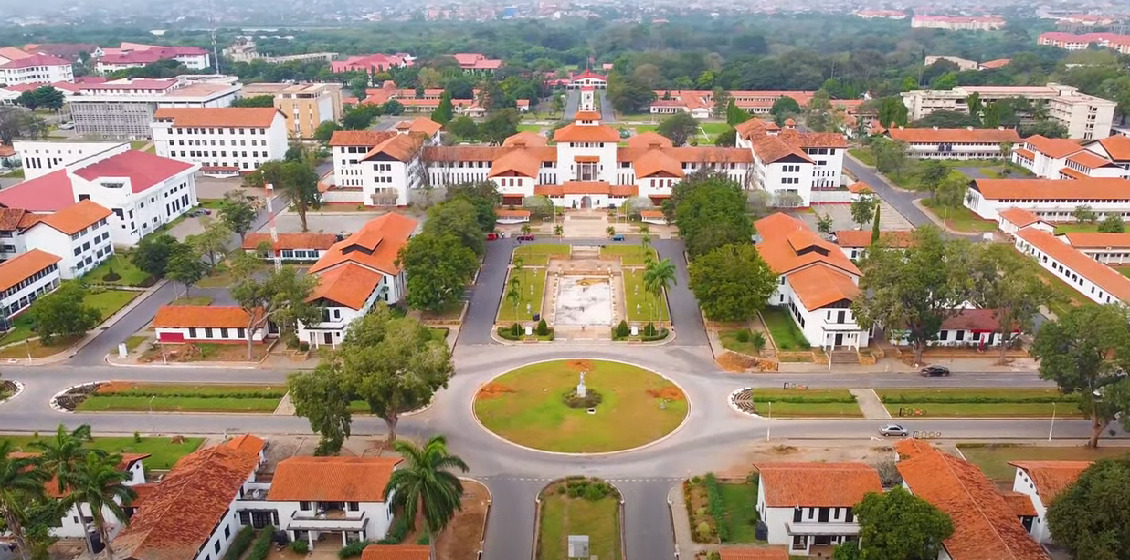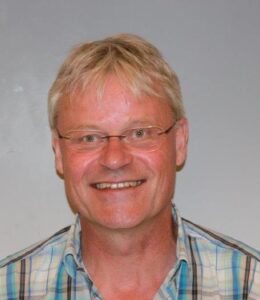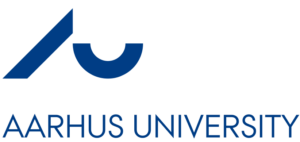Denmark has valuable experience in running an efficient research administration. It’s important to continue sharing this experience with the global South countries like Ghana in order to address risks of bureaucracy, according to an experienced Danish development researcher
In many cases, South partners in development research projects would nowadays be able to continue the projects themselves without the North, including gaining funding from international aid agencies or large private foundations.
”But in the case of long-term and consolidated collaborations like the one between my university and universities in Ghana, they would clearly lose momentum without us”, says Senior Scientist Finn Plauborg, an experienced agrohydrologist at the Department of Agroecology at University of Aarhus.
On top of conducting several research programs between his own department and partners in Ghana and other countries in the Global South, he has served as leading coordinator of the Danish-funded ”Building Stronger Universities” program (BSU) at the University of Ghana. The BSU-program covers a number of universities in selected countries in the Global South, and its specific purpose is to build up research capacity at national universities in the Global South.
It worries Finn Plauborg when, for instance, a country like Ghana – as it happened recently – is removed from the list of countries which receive future research grants from Denmark’s FFU-fund, the Independent Research Fund. Simply because statistics have shown that it has passed a milestone and become a middle-income country and therefore now is considered able to pay itself for that kind of projects.
”And that is not fair”, says Finn Plauborg. For many years, the BSU effort in Ghana has been tied togetherwith FFU-funded research projects primarily concerning malaria and climate change. In these two fields, the local universities have, according to Finn Plauborg’s observations, built their own strong research communities, ranging from professors to postdocs and upcoming PhD’s.
The purpose of the BSU-program was exactly to strengthen the South-North networks and gradually push universities in the South to further develop in the direction of becoming research-based universities. It was fast becoming a success story, but now Finn Plauborg fears this ”momentum” will be lost.
”The typical grants from FFU has only been maybe ten or twelve million Danish kroner, but that has been enough to cultivate a vitalization of local universities’ research capacity. They have been able to continuously employ new postdocs and PhDs and thereby establish a firm structure around them which is partly built on Danish experiences. This progress might get lost with no new funding for FFU-projects. I know this is creating serious frustrations in several scientific fields at universities in Ghana”.
”Indeed, we have had a very strong research collaboration with the two largest universities in Ghana for many years”, he observes. ”The continuity of this effort has been secured through the years exactly because we have had the opportunity to apply for new research grants from FFU when it was needed in order to continue the strong collaboration”.
South-driven projects
Finn Plauborg has developed a very personal commitment towards Ghana. ”When you are running through a village at five o’clock in the early morning to avoid the heat, you can observe that there is still a lot of work for us to do in Ghana. In my opinion, there is still a need for us from the North in that effort”. For Finn Plauborg, it is more than a relationship that he builds with his closest research colleagues. ”When you work there for three weeks in a row, the weekends become a very important part of the stay. You can visit your personal friends – I have three families outside the research community whom I always visit – you can have a local dinner with them.”
”Personally, I have decided to make my contribution in Ghana, maybe five years more. I don’t intend to shop around among countries. Successful development projects are, like most other projects, based on good personal relations. If you have built up a strong relationship that is able to withstand small conflicts which will always appear, then it’s a very valuable thing and you shouldn’t discard it.”
”Look at the successes we have had. During the BSU-program from 2010 until 2015, we had four PhD’s from University of Ghana. All of them are now employees of the university, doing excellent research. We are still working together with them, and we know each other well. They have been to Denmark for longer stays during their PhD-training, and they understand and appreciate our contribution. This is the way to go”.
“During the BSU-programs, we have tried to make the South partners capable of running the projects themselves. It works much better than it did in the beginning.
Finn Plauborg has tried to make his own analysis as to why it is generally so difficult to make this kind of transfer of expertise work. Why do they so often not respond to their emails? The answer is bureaucracy.
“We are, for instance, running into bureaucracy when we are buying research equipment. I have just bought equipment for one million Danish kroner for two projects. It’s the Ghanian university’s money but it’s much easier to circumvent bureaucracy and corruption if I do the actual buying. They avoid so much trouble and extra expenses. We know that when the goods arrive we have to rush to the airport to pick them up. The longer we wait, the larger the expense grows”.
Confidence for the future
One of the main purposes of the BSU program was to transform universities, built on education, into universities, which are also built on their own research.
”Who knows about that? We do, in Denmark. We have a very long and valuable experience in doing exactly that. It’s not something that you can read about in a book. My observation is that when we make an honest effort to share this experience, our colleagues in the South evaluate it very highly. They really get something out of the investment”.
”All the BSU-projects have had an administrative column aimed at introducing a more efficient administrative structure, which the universities in the South didn’t have to begin with. This is totally necessary if they want to become globally recognized research universities. We have observed that in relation to malaria research projects at our partner universities in Ghana”.
As a consequence of both the BSU program and FFU funding being stopped in Ghana, Finn Plauborg has now engaged himself in a large research project proposal into how to improve the water resources of the country at a time when the population has doubled within a few decades. This proposal is formulated in close cooperation with a large Danish private company, Grundfos, and local partners, and, outside the Danida frame, it is still possible to apply for public funding.
”So, even though the malaria and climate change projects will have to stop, I hope to be able to continue working in Ghana. Inspiration from Danish experiences will still .
For a veteran in the field like Finn Plauborg, the reward is mainly felt when he observes ”bright young people who want to become researchers and are developing all the necessary skills. Through the years, we have seen ten or twelve of them in Ghana. It’s such a joy when you feel that they are confident in expressing their opinions and These young people will be very important for Ghana in the future”.




